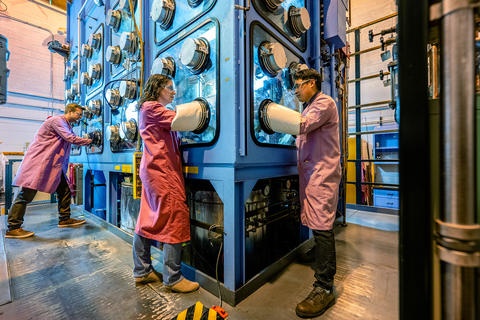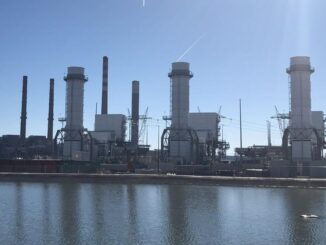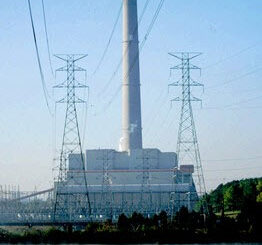
In a significant step toward advancing the U.S. nuclear energy sector, Oklo Inc. (NYSE: OKLO) has announced the commencement of the first phase of construction for a cutting-edge nuclear fuel recycling facility in Oak Ridge, Tennessee. This initiative marks the initial stage of what could become a $1.68 billion Advanced Fuel Center, poised to revolutionize how the nation handles spent nuclear fuel while bolstering domestic energy security.
The facility, designed to recycle used nuclear fuel into usable material for advanced fast reactors like Oklo’s Aurora powerhouse, represents a strategic investment in sustainable nuclear technology. Oklo’s plans include designing, building, and operating the site, with an emphasis on recovering valuable fissile materials from spent fuel. This process not only aims to reduce the overall volume of nuclear waste but also to fabricate new fuel, potentially powering gigawatts of clean energy from what was previously considered discardable material.
The project is expected to create more than 800 high-quality jobs in the region, injecting economic vitality into Tennessee’s growing nuclear ecosystem.
Are you Paying High Taxes in New Jersey, New York, or California?
Oklo’s CEO and co-founder, Jacob DeWitte, highlighted the transformative potential of the project: “Fuel is the most important factor in bringing advanced nuclear energy to market. By recycling used fuel at scale, we are turning waste into gigawatts, reducing costs, and establishing a secure U.S. supply chain that will support the deployment of clean, reliable, and affordable power.”
The company is also collaborating with the Tennessee Valley Authority (TVA) to explore recycling TVA’s used fuel and assessing opportunities for future power sales from Oklo’s reactors in the area. TVA President and CEO Don Moul echoed the enthusiasm, stating, “The next generation of nuclear technologies are being built and developed right here in our own backyard. Our partnership with Oklo represents yet another step forward in shaping the future of nuclear energy and ensuring a secure energy future for the Valley and beyond.”

Tennessee Governor Bill Lee praised the development, noting, “Tennessee is well positioned to lead America’s energy independence, which is why we created the Nuclear Energy Fund to support and expand our state’s nuclear ecosystem. We’re proud to partner with Oklo to innovate for the future, while bringing continued opportunity and prosperity to Tennessee families.”
With regulatory engagements already underway with the U.S. Nuclear Regulatory Commission, Oklo anticipates producing metal fuel for its Aurora powerhouses by the early 2030s, pending necessary approvals.
This announcement comes at a pivotal time for U.S. nuclear energy, which plays a crucial role in the nation’s power mix. As of 2023, nuclear power accounted for approximately 19% of the country’s electricity generation, providing a reliable, low-carbon source that supports grid stability amid growing demands from electrification and data centers.
The U.S. nuclear fleet, the world’s largest, generates around 782 terawatt-hours annually, underscoring its importance in reducing reliance on fossil fuels.
The recycling aspect of Oklo’s facility addresses two key challenges in nuclear energy: fuel supply and waste management. By reprocessing spent nuclear fuel, the technology extracts fissile materials like uranium and plutonium, which can be reused to create new fuel assemblies.
This not only extends the lifespan of existing uranium resources—potentially recovering over 90% of the untapped energy in spent fuel—but also enhances supply chain security by reducing dependence on imported uranium.
On the waste front, recycling significantly lowers the volume of high-level radioactive waste requiring long-term storage, converting it into more manageable forms that are easier and cheaper to dispose of.
This approach improves overall sustainability, minimizes environmental impacts, and aligns with global efforts to mitigate proliferation risks through closed fuel cycles.
As the energy landscape evolves, initiatives like Oklo’s fuel recycling facility could pave the way for a more efficient and resilient nuclear industry. By turning waste into a valuable resource, the project not only supports the U.S. goal of energy independence but also contributes to the broader transition toward clean, abundant power. Stakeholders will be watching closely as construction progresses, with implications that extend far beyond Tennessee’s borders.
Avoid Paying Taxes in 2025
Crude Oil, LNG, Jet Fuel price quote
ENB Top News
ENB
Energy Dashboard
ENB Podcast
ENB Substack






